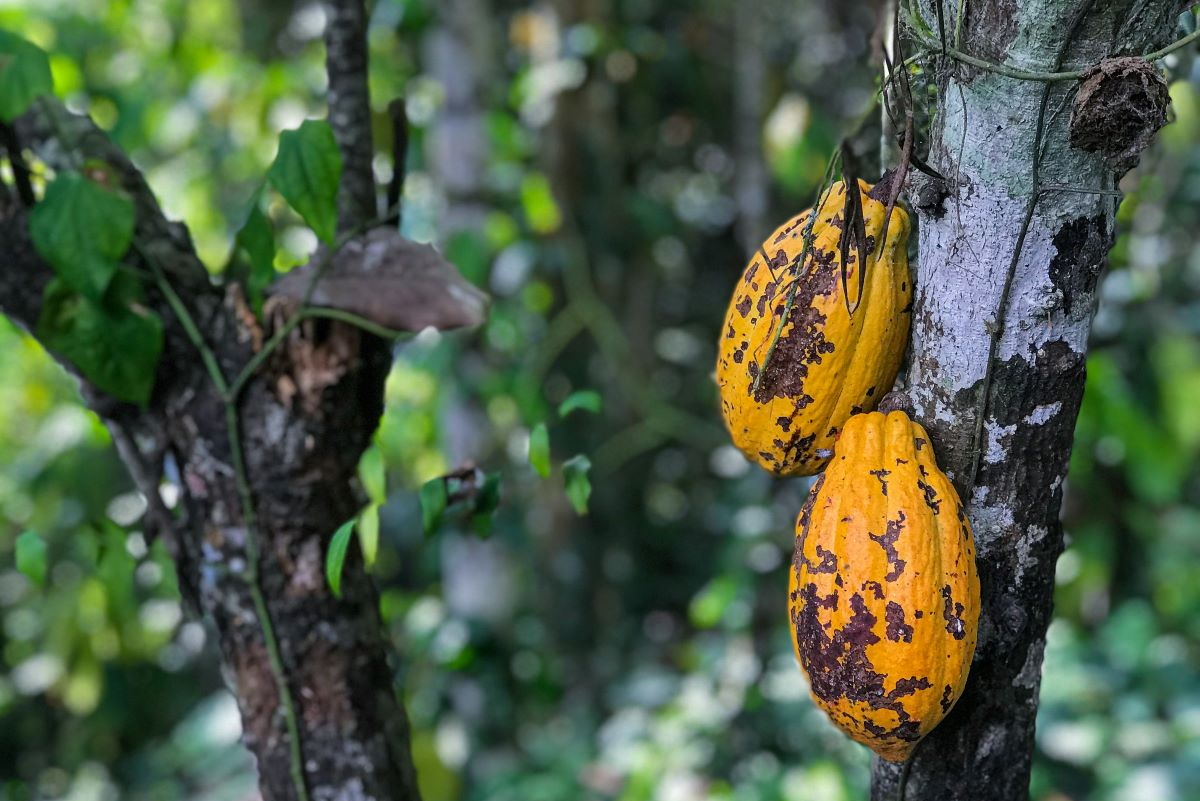Agroforestry: A Solution for Sustainable Cocoa as Climate Changes
A recent master's thesis by Jonna Halonen highlighted the vital role of shade trees in safeguarding cocoa agroforestry systems. By integrating shade trees into cocoa farms, farmers can increase resilience to climate change while promoting sustainable and eco-friendly cocoa production practices. July 10, 2023
Jonna, a talented environmental engineering student from Stockholm’s esteemed Royal Institute of Technology (KTH), collaborated with Nature-based Solutions Initiative, with expert guidance from Dr. William Thompson and Dr. Ulla Mörtberg, for this key research – as part of the UKRI NERC funded HARP project.
Following several months based in the NbSI in Oxford, Jonna immersed herself in the world of cocoa farming, in the landscapes of Kumasi, Ghana. There, her study explored the potential of shade trees in sustaining cocoa production under changing climatic conditions.
The fieldwork was partly funded through the Swedish scholarship Minor Field Studies provided by The Swedish International Development Cooperation Agency.
The thesis consisted of two parts:
- To conduct a species distribution model to examine which shade trees used in West African cocoa agroforestry systems would be suitable for future climates;
- To examine how the microclimate on farms was affected by the diversity of shade trees on the farms.
As part of the fieldwork, Jonna joined up with a team of skilled field assistants from Ghana’s Kwame Nkrumah University of Science and Technology (KNUST). Together, they gathered comprehensive data on microclimatic measurements, farm characteristics, and household surveys. Harnessing technology, they also utilized drones to acquire valuable aerial data.
To comprehensively evaluate microclimate influence, Jonna strategically positioned sensors both above the cocoa canopy and in the ground, to record maximum temperatures during the study period. By comparing temperatures recorded near shade trees versus in open areas, she sought to assess the shade trees’ buffering capacity. The study incorporated three distinct farm structures, which were categorized based on the diversity and density of shade tree species.
Data analysis found farms with a medium/high density of shade trees exhibited a significant buffering of temperature increases, when sensors were placed above the cocoa canopy near a shade tree. However, no significant changes were observed at ground-level. This indicates potential benefits for local farmers of further research of agroforestry solutions, to aid crop resilience against projected temperature rises in West Africa. By integrating shade trees into cocoa farms, farmers can increase resilience to climate change while promoting sustainable and eco-friendly cocoa production practices.
By tapping into the potential of nature-based solutions such as agroforestry, we can build resilient agricultural systems and ensure a thriving cocoa industry for generations to come.

NbSI Will Thompson and Jonna Halonen, together with colleagues from Ghana’s Kwame Nkrumah University of Science and Technology (KNUST).
Related Publication
Cocoa plantations are associated with deforestation in Côte d’Ivoire and Ghana | Nature Food
